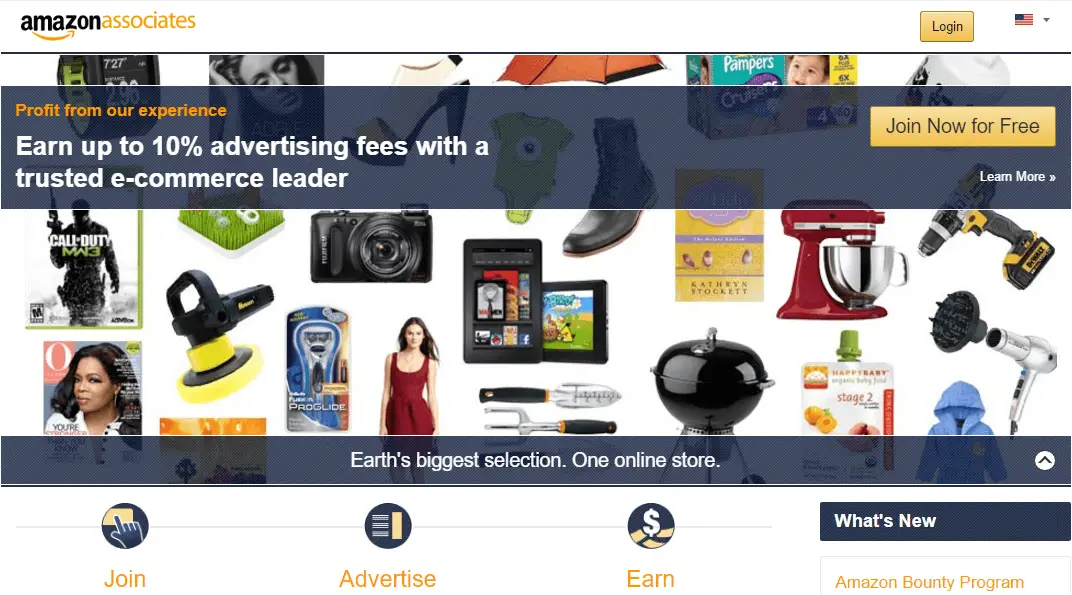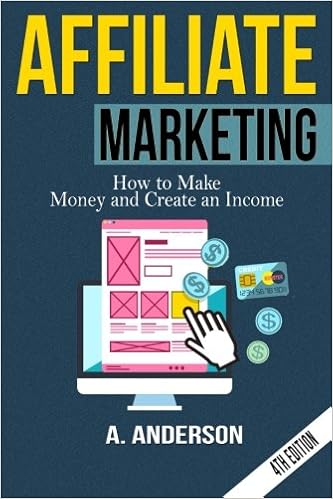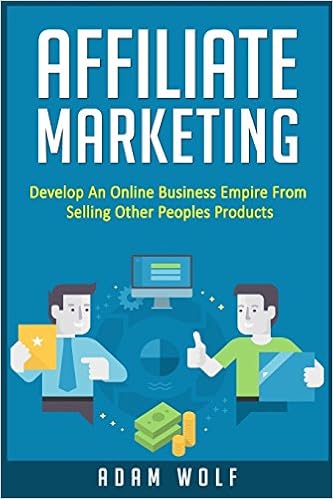You may have heard the term ‘Affiliate Marketing’ very often while talking with a blogger or an internet marketer. For people, who are actively involved in blogging and online marketing for years to earn passive income, it is not something entirely new. Affiliate marketing is, in fact, the most lucrative and easy way to earn money online.
In this article, we will cover the basics of affiliate marketing as well as all the necessary details you need to know, in order to understand how affiliate marketing works and how you can easily get started. At the end, we will share book & other materials for further studies.
Quick Navigation
- What is Affiliate Marketing?
- How Does Affiliate Market Works?
- The Core Components of Affiliate Marketing
- Affiliate Marketing Terminology
- Affiliate Marketing FAQs
- Expert Tips for Successful Affiliate Marketing
- Affiliate Marketing Resources
What is Affiliate Marketing?
Affiliate marketing is one of the oldest forms of earning a commission by promoting other people’s (or company’s) products or services on your blog or website. You find a product or service you like, recommend it to others, and when someone buys the product or service based on your recommendation, you get a slice of the profit.
The amount of commission, you can earn while promoting others’ products and services, varies from $1 to $10,000+ depending on what products and services you are promoting. Many companies have no upper bound on the amount of commission you can earn by promoting their services and products.
How Does Affiliate Marketing Work?
The affiliate marketing process is very simple to understand and it can be explained in just four basic steps:
- The buyer is looking for something to buy from a particular person or a company.
- You are an affiliate of that particular company or person and are promoting their products and services on your website. The buyer lands at your website in search of product (through any mean like Google search, user recommendation or cold email marketing).
- The buyer clicks on any affiliate link or banner, you put on your website for promotion after reading the product or service discount offer or review and is redirected to merchant website.
- The buyer orders that particular product or service and the merchant rewards the affiliate for his marketing efforts.
The core idea behind affiliate marketing is that you promote the products or services of others on your website or blog by putting their products banners, writing honest reviews about their products and services, comparing their products and services with their competitors and more. In return, when someone buys any product or services by reading your review or comparison, you earn a commission.
The affiliate marketing model is based on revenue sharing — one of the most oldest forms of marketing. If you have a product and want to bring more customers to sell it, you can offer affiliate a financial incentive in form of a percentage in revenue. Similarly, if you don’t have any product and want to monetize your website or blog, you opt to promote others’ products and services that you think are worth promoting.
There are three main parties involved in affiliate marketing process: the advertiser, the publisher and the customer. Some people also consider the affiliate networks as part of affiliate marketing, but it is optional. At its very core, affiliate marketing is all about relationships between these parties.

It is obvious from above image, affiliate marketing is not merely the promotion or just the product creation. It is a process of extending the product or service creation and adding product or service marketing across different parties, where easy party receives a chunk of the revenue, based on their contribution.
The Core Components of Affiliate Marketing
The affiliate marketing process consists of four main components: the advertiser, the publisher, the consumer & the affiliate network. Let’s start with the publisher first.
The Advertiser
In affiliate marketing, an advertiser can be a company or an individual offering a product or service like web design, web development, electronics gadgets, airline tickets, clothing, shoes, or it could be an insurance company selling policies. The advertiser sometimes also refers as the merchant, the creator, the seller, the brand, the retailer or the vendor.
In simple words, an advertiser is one who is willing to pay other people or a company to promote their services and products to help them grow their business. It can be a large company like Allstate insurance company, which sells insurance policies to U.S. citizens. Or, it can be a medium scale company like Bluehost, which offers hosting products and services like shared hosting, VPS or dedicated hosting to its clients across the globe.
The Publisher
The publisher is sometimes also known as the affiliate. The affiliate can be an individual or a company that promotes an advertiser’s products or services on their website or blog to earn the commission on sales. The publisher is responsible for marketing the products of the seller.
The advertiser is responsible to provide promotional materials to the publisher – in the form of links, text ads, banners, discount codes, or even unique phone numbers – that the publisher then put them into their website or blog.
The publisher can choose to promote one or multiple products from one or more advertisers and tries to write product review and product comparison to convince the potential customers of the value of the advertiser’s product, so that they end up buying that product.
The Consumer
The consumer or the customer is the final necessary component that completes the affiliate marketing relationship triangle. The customer is the one who helps the whole affiliate system keep moving. Because without any active sales, there won’t be any revenue collected and no commission to be shared.
It is the affiliate who tries to reach the potential customers on whatever place they see fit, whether that is a social network, email marketing, digital billboards or through content marketing on their blog or website.
It all depends on the affiliate whether he wants to let the customers know whether they are reading affiliated content or not. Some people choose to let their reader know to remain transparent about their marketing incentives, but others don’t.
The Affiliate Network
Although, the affiliate network or just the network is not considered as an active part of affiliate marketing campaign, but it appears handy especially if you are intended to join multiple affiliate programs. The affiliate network plays a role of a middleman between a publisher and an advertiser.
There are many companies which offer in-house affiliate programs, which you can join, but it makes it difficult to manage multiple programs. The affiliate network helps you focus more on promoting the products and services rather then wasting time on payments and product promotional materials.
Amazon Associates is an example of one of the biggest affiliate networks for promoting consumer products like books, tools, toys as well as household items. It allows you to promote any item that is sold on their platform to earn commission.

Affiliate Marketing Terminology
The most frequent question, many newbies ask, is how companies know who is sending the traffic and making the sales. The answer lies in tracking a unique URL. When you sign up for an affiliate program, they generate a unique referral URL for you to track the referral traffic.
The referral URL is the main source in affiliate marketing. The advertiser uses it to keep track of all the traffic and sales of their products and services via your website, social media platforms and email marketing etc. There are still few old-fashioned affiliate programs that ask the buyer to enter the username or email of the affiliate in order to consider it an affiliate sales, but it is very rare and is not a good way to track affiliate progress.
There are tens of thousands of companies, which sell products and services online such as logo design, air tickets, electronic gadgets, clothes, shoes, web-hosting or any other service or product, offer an affiliate program. You can easily join any such program and get the unique referral link. Now, whenever, you will write about the product or service, you can simply use that special tracking affiliate link to recommend the company’s products and services. When your visitors will order that service or product, you will earn a piece of revenue for your hard work.
Each affiliate program offers a set of terms and conditions (TOS) which is a mutual contract between the advertiser and the publisher. These terms govern the rules of cookies policy as well as payout options. For instance, many programs offer a 60-day cookie policy, which means that if a visitor uses your particular affiliate link to access the company’s sales page and instead of buying straightaway, he buys the product or service later on within the next 60 days, you will be still entitled to claim sale commission.
Similarly, terms of service also defines the payout options as well as the affiliate earning release policy. Following are some of the most common terms associated with affiliate marketing:
- Advertiser: A company or individual offering a product or service and willing to pay other individuals or a company in order to promote their products and to grow their business.
- Publisher or Affiliate: Publisher can be an individual or a company involved in promoting an advertiser products and services on their website or blog by using unique referral links.
- Consumer or Customer: The person who buys the promoted product or service via affiliate links.
- Affiliate Network or Marketplace: There are many affiliate networks like CJ, Clickbank and Shareasale, which work as a middleman between the publishers and the advertisers. They are like a central database for affiliate programs in different niches.
- Affiliate Link: The special unique tracking link given to you by your affiliate program to track the sales via your recommended visitors.
- Affiliate Software: The special software used by the companies to create their in-house affiliate program for their products and services. One common example of such software is iDevAffiliate.
- Affiliate ID: Similar to the affiliate referral link, there are many programs which offer a unique ID that can be then embed to any page of the product or service.
- Affiliate Commission: The amount earn by the affiliate by recommending the advertiser’s products and services. It is generally a slice in the revenue collected from the product sales.
- Payment Mode or Payment Options: Different affiliate programs offer different payment methods to withdraw the commission. For example, Wire Transfer, PayPal, Check etc.
- 2-tier Affiliate Marketing: This is a great way of making extra money from an affiliate program. There are few affiliate programs which offer 2-tier marketing strategy. This essentially means you recommend others to join affiliate program, and you will receive a commission when a sub-affiliate makes a sale, known as sub-affiliate commission.
- Landing Pages or Product Pages: A unique product or service sales or demo page used for the purpose of marketing and increasing sales. Most of the programs offer such landing pages.
- Affiliate Bounty: Many affiliate companies offer bounty to their affiliates on the number of sales. The top affiliates get an extra money in the form of bounty or performance reward.
- Custom Coupons: Many affiliate program allows the publisher to create custom coupon codes which are also used to track sales. Custom coupons sometimes work as an affiliate link.
- Link Cloaking: A method used to make a long affiliate URL link into a shorter and prettier one — often to the detriment of a brand. One of the most common forms of link cloaking occurs when an affiliate doesn’t use its own URL at all, but rather just appropriates a brand’s URL without any disclosure.
Affiliate program offers a great opportunity to the companies to promote their services and products without spending much on the marketing. They only pay to affiliate when any sale happens. For affiliate, it is great way of making extra money without owning any product or service.
Affiliate Marketing FAQs
So far, we have discussed what is affiliate marketing, how does it work and what are the technicalities involved in such program. At this point, we have a basic understanding of what affiliate marketing is and how it works.
Now, let me answer some of the most frequently asked questions related to affiliate marketing and affiliate programs:
1. Is affiliate marketing legitimate?
Yes, it is fully legal way of earning money online. It is neither harmful nor illegal in any way. You simply promote the services and products of other company or an individual to earn the commission.
2. Can I use affiliate marketing along with Google AdSense?
Yes, you can! It does not violate any AdSense terms of service. For many people, affiliate marketing is far better than Google AdSense.
3. How much does it cost to join an affiliate program?
It does not cost any money to join an affiliate program. However, it may add cost depending on what promotion methods you’ve chosen. For example, writing a quality post, product review, PPC marketing, email marketing or advertising may add extra costs.
4. Is it necessary to have a website or blog for affiliate promotion?
Not necessarily! It is not must to have your own blog or website for promoting products and services. You can still promote the advertiser’s products and services on your social media pages or include a link in your email signature etc. However, a blog is the best way of promoting products.
5. Do I need any specific skills set to become an affiliate partner?
There is no qualification needed to join an affiliate program. But good writing and marketing skills are always a plus.
6. How much money can I earn from affiliate marketing?
As we discussed in previous post, there is no upper bound on the amount of commission you can earn from affiliate programs. It all depends on your marketing strategy and the type of products you are promoting.
7. How much time do I need to invest in affiliate marketing?
Please be sure, affiliate marketing is not an easy way of earning money. It needs a lot of patience and commitment to get the first sale. It is not like you just post the affiliate links in your website and boom, you’re millionaire! You have to create quality content, craft an out-of-the-box marketing strategy, and work hard to reach the target audience.
8. How much traffic do I need to earn good commission?
Affiliate marketing is totally different world than Google AdSense! It does not matter how much traffic your website is getting monthly because you are not getting paid based on the website’s visitors. The most important thing is how many targeted visitors (the visitors how are relevant to the products you are promoting) visit your website monthly because they are likely to buy the promoted products.
Expert Tips for Successful Affiliate Marketing
The affiliate marketing may look like an easy way of earning money, yet it needs a lot of patience and dedication. It is not like you sign up for any affiliate program, copy paste their affiliate links on your website and boom, you are millionaire! It may take months of constant efforts, high quality content creation, out of the box marketing strategy, and the goodness of your relationship with fellow affiliates before you expecting something to earn. All of these factors are important to run a successful marketing campaign.
There are few extremely important rules when it comes to promote products and services that are not your own. You don’t need these rules to become an affiliate, but to become a successful affiliate, you may find them useful.
1. Share Your Personal Experience
Never recommend something you are not familiar with! It is a million dollar advice. If you really want to win the trust of your reader, be honest with them. If you never heard of, or used any product or service, don’t recommend it to others. For example, I am a developer, I’ve created many websites and I know what the heck is web development. I do know about what is web hosting, domain registration, website design etc. What if I start recommending medical products or services to my visitors, does it make sense? no, not at all.
2. Build Trust
Don’t go beyond your experience with any product or service. Never tell directly to your visitors to buy a product! Don’t exaggerate the facts! Always write to help the others based on your personal experience with that particular product or service. Don’t review or compare any product or service just to force the reader to buy it. It will help you to build trust with your visits which is very important for long term success.
3. Know Your Audience
Know your website audience first! It may look overlapping with first point but it is entirely different. Always follow the theme of your website. Know your audience first before you jump into affiliate marketing. It is very critical and many people ignore it completely. For example, if you are running a blog writing about website development and design, it is worth promoting products and tools which are useful in launching a successful website rather than going off the topic to promote health products.
4. Be Honest
Honest affiliate marketing is what that can make difference in your journey of success. It may be easily to misguide the visitors by exaggerating facts, but remember, we’re living in digital era where nothing is secret to anyone. You may be able to earn quick cash, by it will lead the visitors move away from your site.
Affiliate Marketing Resources
There are lots of people involved in promoting others products to earn money, but very few of them can make a substantial monthly income from their business. This is due to lack of necessary marketing skills. Placing just a few affiliate links or banners in their sites can’t make a good money. Follow the expert ideas from the following best books for affiliate marketing and start maximizing your online income in no time.
I have selected the top 5 best books to successfully set up your successful affiliate business or to improve if you have already existing one.
 1. Affiliate Marketing: How to make money and create an income Paperback
1. Affiliate Marketing: How to make money and create an income Paperback
by A. Anderson
Many effective marketing tips, formulas and shortcuts are discussed in this book. You will learn about the right affiliate programs, creating affiliate campaigns and building web traffic.
by Jeff Walker
“Launch” will build your business—fast. Whether you’ve already got a business or you’re itching to start one, this is a recipe for getting more traction.
 3. Affiliate Marketing: Learn How To Make Your First $1000 Passive Income Online Paperback
3. Affiliate Marketing: Learn How To Make Your First $1000 Passive Income Online Paperback
by Ray Hamilton
A good book to make extra income through affiliate marketing! In this book, you’ll find lots of new tips and tricks of effective marketing. Read this book and learn the new ways of a successful affiliate marketing.
 4. Affiliate Marketing: Develop An Online Business Empire From Selling Other Peoples Products Paperback
4. Affiliate Marketing: Develop An Online Business Empire From Selling Other Peoples Products Paperback
by Adam Wolf
In this book, Adam Wolf teaches you on selecting the best niche, setting up a good affiliate site and joining affiliate networks. You’ll also learn SEO tips and secrets for building traffic on your website. Highly recommended!
 5. Amazon Associates: Complete Guide: Make Money Online with Amazon Associates: The Amazon Associates Bible: A Step-By-Step Guide on Amazon Associates Affiliate Program Paperback
5. Amazon Associates: Complete Guide: Make Money Online with Amazon Associates: The Amazon Associates Bible: A Step-By-Step Guide on Amazon Associates Affiliate Program Paperback
by Dan Johnson
Amazon has a lot of products and you can start a successful affiliate niche from their products. Dan Johnson unfolds the ways to become an Amazon Associate, the best secrets and practices of affiliate marketers. A must read book!
I hope this article will help you understand what exactly affiliate marketing is, the basic component & terms used in affiliate marketing and how to get started with it. If you have any question or suggest, please write in comments section or contact us.
If you want to receive weekly blogging tips, marketing news, tutorials, plus news & discount coupons, please subscribe to our newsletter. You can also follow us on Twitter, Google+, Linkedin and Facebook.






Stromectol
Negdop Prednisone
tadalafil online cost tadalafil generic
You’re so awesome! I don’t believe I have read a single thing like that before. So great to find someone with some original thoughts on this topic. Really.. thank you for starting this up. This website is something that is needed on the internet, someone with a little originality!
Your point of view caught my eye and was very interesting. Thanks. I have a question for you.